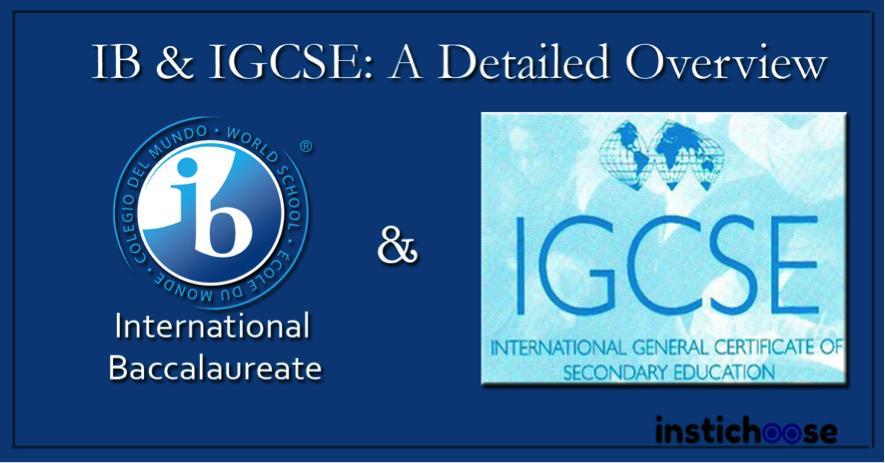How to Choose Subjects for Igcse IB

Education Consultant, Karan Gupta, takes you through the different subject combinations of the IGCSE and IBDP boards
With thousands of students opting for the IGCSE in the 10th grade and IBDP in the 12th grade, more guidance is needed to choose the right subjects. Before deciding on the subject choice and career options, it is imperative to understand the structure of the IBDP and the IGCSE.
The IB Diploma Programme consists of 6 groups and students choose 5 subjects each from 5 groups. In addition to this, students must choose an arts subject from the 6th group or another subject from groups 1 to 5. Subjects are further classified as High or Standard Level which basically refers to the number of hours the subjects are taught – 240 teaching hours for the high level and 150 teaching hours for the standard level. Naturally, high level subjects will be harder as compared to standard level subjects.
The six groups are divided as follows:
Group 1: Studies in Language and Literature : English, Literature
Group 2: Language Acquisition: French, Hindi, Spanish
Group 3: Individuals and Societies: Business Management, Economics, History, Geography, Psychology
Group 4: Sciences: Physics, Chemistry, Biology, Computer Science
Group 5: Mathematics: Math, Math Studies
Group 6: Arts: Visual Arts, Literature and Performance
Typically, a student who wishes to study Engineering at the college level should take a combination such as:
HL: Physics, Chemistry, Math
SL: English, Hindi, Business Management
If the student finds the above combination difficult, the student can move Business Management at the Higher Level and Chemistry at the Standard Level.
Similarly, if a student intends to major in Business Administration in college, the student can opt for a subject combination as follows:
HL: English, Business Management, Math
SL: Spanish, Biology, Economics
Many colleges in the UK insist that students must have Math at the Higher level in order to be considered for certain courses at the Bachelor’s level. US universities are more flexible and you can pretty much choose any course that you want to at the Bachelor’s level, even if your subject combinations at the IBDP are completely different. However, unless you are quite sure that you are going for an Arts related discipline, it is advisable to keep Math in your subject combination.
If a student does not wish to study abroad but instead wants to get into a Mumbai University course, the student again would have to make sure to follow all the Mumbai University guidelines including having Physics, Chemistry and Math as part of the subject combinations to study Engineering later. For example, students who wish to pursue a Bachelor’s degree in Chemical Engineering at Mumbai University, must have Chemistry as a High Level subject in IBDP and must also have Physics and Math as part of the subject combination.
The IGCSE exams are 10th grade exams conducted by many international schools. The IGCSE consists of 5 groups and students must take a minimum of 5 subjects to qualify for the IGCSE exam and if students take 7 subjects they get an additional qualification called the ICE (International Certificate of Education). The groups are as follows:
Group 1: English Language, Hindi
Group 2: Economics, Geography, History, English Literature
Group 3: Physics, Chemistry, Biology
Group 4: Mathematics, Additional Mathematics
Group 5: Business Studies, Information Technology
Depending on the school and subject choices offered, students can add in additional subjects. Hence, a student who wishes to pursue Engineering can opt for a subject combination as follows: English Language, Hindi, Economics, Math, Physics, Chemistry and Business Studies.
The Association of Indian Universities state that five passes (including English) at grades C or above in the IGCSE is sufficient for the 10th grade qualification and migration to the Indian board system. However, students who wish to study Science must opt for Math and Science subjects including Physics, Chemistry and possibly Biology.
With a plethora of options to choose from, students are now spoiled for choice. It is imperative, however, that students choose subjects based on their future career choice and not because a particular subject seems easy or difficult. If a student is uncertain about their career choice but knows that engineering is something he or she will never do, then it’s fine to drop the science subjects as long as Mathematics as a subject is still kept. Finally, if a student is certain of career based in arts, dropping Math and Science both is an option.
The author is an alumnus of Harvard Business School
Why Choose Karan Gupta Consulting?
- 27+ years of expertise in overseas education consulting
- 160,000+ students successfully counselled
- Personal guidance from Dr. Karan Gupta, Harvard Business School alumnus
- Licensed MBTI® and Strong® career assessment practitioner
- End-to-end support from career clarity to visa approval

Dr. Karan Gupta
Harvard Alumnus | Career Counsellor
With 27+ years of experience, Dr. Karan Gupta has helped 160,000+ students achieve their study abroad dreams at top universities worldwide.




